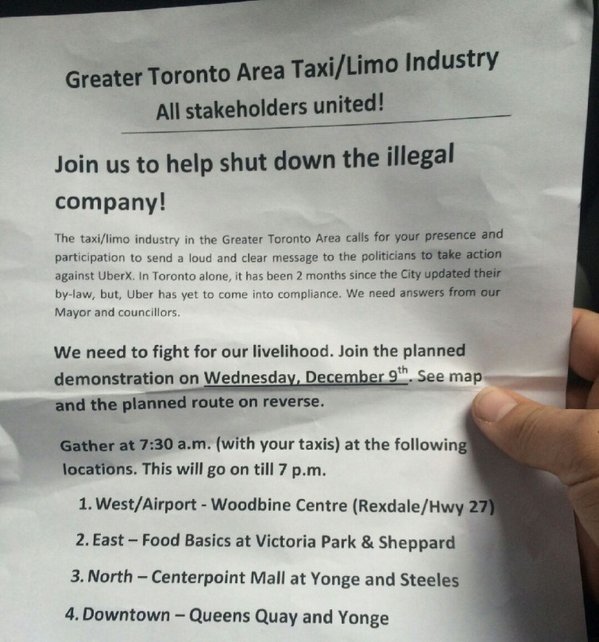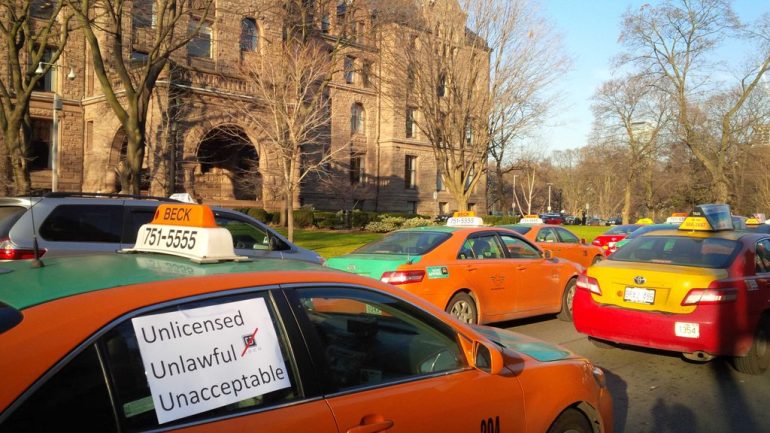Uber has started rolling out a dedicated mobile app for its UberEATS service.
The dedicated app allows individuals who live and work in downtown Toronto to order food from some of the city’s best-regarded restaurants, including Flock Rotisserie, Hawker Bar and Momofuku Noodle Bar. Uber promises to deliver items ordered from the app’s signature menu in 10 minutes or less. The company is also currently waiving delivery fees until the end of the year.
Launched earlier this year, UberEATS was previously accessed through the company’s mainline app. Besides creating a dedicated app for the experience, it also appears Uber has significantly expanded the number of restaurants present on the service, though like with previous iterations of UberEATS, each restaurant doesn’t list its entire menu through the app.
Previously UberEATS was available on weekdays between 11am and 2pm, but in the dedicated app most dishes are available between 10am and 10pm, seven days per week. The app is currently only available for iPhone.
MUST WATCH: Taxi driver confronts a suspected @Uber X driver in #Toronto. @cbctoronto #breaking #TaxiStrike pic.twitter.com/lyZiEbfw4c
— Matt Llewellyn (^mll) (@Mattrolinx) December 9, 2015
At the same time, the success of UberX, and the ambiguous state of regulation around the $62 billion ridesharing giant, has prompted the largest one-day taxi protest in Toronto’s history.
Hundreds of taxi drivers are taking part in the protest, which originated from four Toronto locations this morning. The goal, to disrupt Toronto’s already-overburdened transit and roadway systems, is just one of several ways the taxi industry has tried to appeal to Toronto’s City Hall over the past year, as UberX’s lower-cost service has eaten into their considerable market share.
Last week, several men staged a hunger strike in Nathan Phillips Square, the concourse outside City Hall, to bring attention to their plight, claiming that the lack of regulation around Uber has left them with no choice. UberX fares cost less than the average Toronto taxi fare, even after a reduction of $1 per ride was passed by council in late October.
The taxi companies, their drivers, and many of the associations formed to protect their rights and promote their interests, agree that Uber is operating a “black market” cab company, moonlighting as a ridesharing program. Many drivers assert that because UberX drivers don’t require the stringent background checks and pricey insurance policy of their regulated peers, they are able to take home considerably more money at the end of each day, despite the lower base fares.

Toronto’s UberX system has a base fare of $2.50, plus $0.18 per minute and $0.80 per kilometre. Each ride also has a $1.50 “Safe Rides Fee,” which, according to Uber, “supports the operation of the Uber platform, including a background check process, development of safety features in the app, incident response, and other operational costs.” The company faces a class-action lawsuit over the fee in San Francisco.
The biggest taxi companies in Toronto, such as Beck, Co-op, and Royal Taxi, discouraged their drivers from participating in the demonstration, but acknowledged that they couldn’t stop them. Kristine Hubbard, Beck Taxi’s operations manager, told The Globe and Mail that “a protest that inconveniences Torontonians is [not] the appropriate course of action,” but thinks that things have to change in regards to Uber’s regulations.
The city has promised to create a single bylaw that applies to both the regulated taxi industry and ridesharing programs like Uber, but won’t commit to a timeline. In the meantime, the incumbents are pushing for a shutdown of Uber’s operations in Toronto until the new bylaw is passed, but Uber has said that it plans to continue operating indefinitely.
Image credit: Mike Crawley, CBC
This article is an amalgam of two amazing publications from MobileSyrup.


